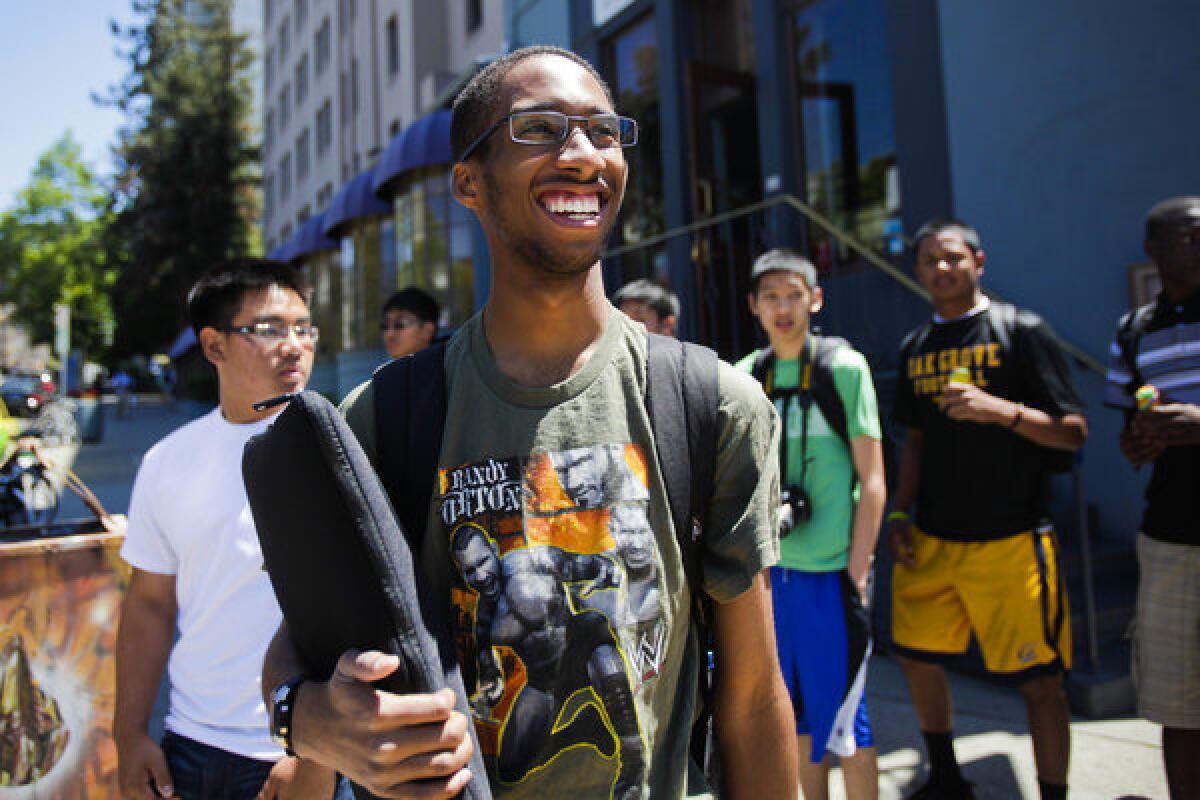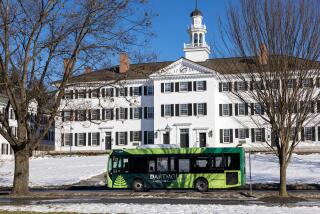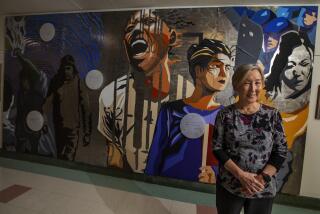UC Berkeley struggles: Readers weigh lessons of Kashawn Campbell

Freshman year at UC Berkeley shook South L.A.’s Kashawn Campbell to the core.
Times readers were rattled too -- by staff writer Kurt Streeter’s nuanced front-page portrait of Campbell, “Struggling at the crossroads.” A key theme among the responses was a sense of sadness from many readers, who saw a bright and hardworking young man who had been “let down.” Some saw his story as a failure of affirmative action; others faulted the preparation (or lack of it) from his high school. A few suggested a mismatch in the college process.
Thomas Hoerber of Valencia wrote that he “can sorely relate” to the challenges faced by Campbell during his first year at UC Berkeley:
“Raised on a ranch, the most literate words in my household were along the lines of ‘When you get home from school, feed dem chickens.’
My daughter is now at Berkeley and thankfully doing well. However, in getting her settled there, my wife and I could see how overwhelming it can be even for students who finished at the top of their class.”
Yet, like many readers, he questions the “fit” and its potential results:
“It doesn’t do anyone any good to feel like they are a failure when put in an environment they are not prepared to handle.... There are questions on this student’s situation. What about his SAT scores, or even his application essay? Were they not a warning that he wasn’t ready for advancement?”
Sue Roediger of Alhambra concurs:
“I am guessing the staff at Jefferson High School thought they were helping Kashawn get into college … but they certainly didn’t prepare him for college. Giving a student an A in a class because he is the best student in the group may make him feel proud of himself for the moment, but Kashawn’s story shows what happens when one tries to participate at the same level with students who are from schools where an A means 90% of the work is correct.
“It is a tribute to his tenacity, and a merciful English teacher, that he didn’t flunk out. When I was teaching, I worked with black and Latino youth. They are not any less intelligent than any other group; given equal teaching and opportunity and held to the same standards, they can achieve as much. We need to commit to smaller class sizes in these kinds of schools and after-school programs with tutors, starting in kindergarten.
“Community college would have been a better fit for Kashawn. He would not have felt like such a fish out of water.”
Mark Collins of Altadena sees “a kid eager to learn who did not have the tools for an excellent university. He is failing and is beaten down to the point of depression.”
Collins suggests:
“Take an alternative: Aim Kashawn, the achiever, at a less prestigious academy where he isn’t mixed with the best and brightest in the nation but where he can succeed among peers rather than crash and burn against genius.
“Not all great lawyers or entrepreneurs went to Harvard. Overreach by affirmative action has probably produced more failures than what-could-have-been successes.”
Exactly, says Maya Levinson of Los Angeles:
“The article made me very sad. Kashawn is obviously a bright and enthusiastic young man, but we let him down in so many ways. I do hope that he overcomes these obstacles -- but they are likely to trip up others like him.”
ALSO:
Jesse Lee Peterson, tea’d off in South L.A.
Photo essay: How gritty L.A. transforms from day to night
Prescott takes the cheapskate approach to dead Yarnell firefighters
More to Read
A cure for the common opinion
Get thought-provoking perspectives with our weekly newsletter.
You may occasionally receive promotional content from the Los Angeles Times.






